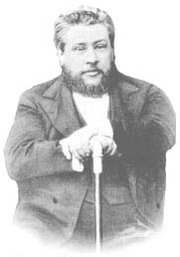 Continuing from part 7….
Continuing from part 7….
At last, this series is coming to a close. We’ve explored an understanding of the land promise informed by NT Scripture itself. All believers are Abraham’s heirs, and they inherit the promise that he would be heir of the world (Rom. 4:13-16). Gentile believers can expect to “live long in the land” (Eph. 6:3), even as the meek “inherit the earth” (Matt. 5:5). Just like in Ps. 37, it is only the righteous who inherit the earth and dwell in it forever, not anyone who claims the name of Christ. While Israel did possess the land for a time, and all of God’s promises were proven true (Josh. 21:43-45, 1 Kings 8:56) and fulfilled, the actual experience of Israel in the land fell short of the prophetic expectation. Ultimately the spiritual seed of Abraham will inherit a new heaven and a new earth, and all the believing children of Abraham from all time, will enjoy the eternal kingdom of the new earth in resurrected bodies. The new earth will center on the heavenly Jerusalem, where God’s presence will dwell eternally with His people. The church was God’s temple on earth, and in the eternal state there will be no temple, as we enjoy God’s presence forever. Indeed, even now, we share in the worship of the heavenly company of the redeemed who are in the heavenly Jerusalem, of which old Jerusalem was just a picture.
How this Understanding Matters
At this point, I’d like to emphasize why this matters. Many readers have probably skipped over these posts as irrelevant. “This is just a theological squabble over semantics”, they might say. I contend this understanding, which invariably leads to a reordering of or even a wholesale rejection of dispensationalism, has profound implications. I’d like to discuss four broad categories directly influenced by this understanding of the land.
How You Read the Bible, and the Unity of God’s People
When you really grasp this idea of how the NT Church experiences the land blessing now, and even more so later, you comprehend what Eph. 2, Gal. 3, 1 Pet. 2 and Rom. 4 overwhelmingly proclaim — that the Church in the NT and believing Israel in the OT are together to be understood as God’s people. Sure there are some important differences, but we are unified as one people of God. When reading the NT we constantly are reminded that just like the saints of old had to trust in God by faith, so we do today. They looked forward to Christ’s day and we look back, but we all prize Christ.
This in turn revolutionizes how you read the Bible. You no longer read certain sections as if they don’t apply to you at all. instead you see everything through the lens of faith. You understand how the Israelites’ plight in Judges parallels our plight in our fight for faith today. You also start to see how the NT ties in to the OT in profound ways.
As an example, consider baptism and the Lord’s Supper. Baptism is not a totally distinct, new thing in our age. Moses and the Israelites were in a sense baptized in the Red Sea (1 Cor. 10), and the word baptism is used of ritualistic washings in the OT (see the use of the Greek words relating to baptism in Hebrews). Of course the New Testament makes clear that baptism symbolizes cleansing from sin (Acts 22:16), and OT Israel had many ordinances and ceremonies which symbolized the same thing with water. This should help us see that baptism, while definitely illustrating our solidarity with Christ in his death and burial, still most basically symbolizes that Christ has washed us from our sins. Without this full fledged understanding of Scripture’s unity, numerous baptism services totally ignore the most fundamental and basic meaning of the symbol of water baptism.
The Lord’s Supper, likewise connects with the Passover. It was first instituted at an observance of Passover. Indeed, Passover’s true meaning was transformed (or revealed) by the Lord’s Supper. We now have Christ offering his body as the final and ultimate sacrifice. Just as Passover was to be a family and corporate event, which remembered the sorrow of the sacrifice but majored on the joy of being rescued from death, so the Lord’s Supper is a church ordinance and should include both sorrow and an emphasis on joy. I am probably going off on a bit of tangent here, but consider how this impacts the understanding of substitutionary atonement. Jesus declared his blood would be offered to establish the new covenant. Hebrews declares blood-shedding is required for a covenant to be in effect. The blood shed at the original Passover, was shed only for a specific group of people, and it was placed over their door posts to mark off God’s people. Similarly, Jesus blood is shed for his people, with whom He establishes his new covenant.
These are just a few examples of how this understanding transforms your reading of and appreciation for the Bible.
How You Think About Modern Israel, Political Activism & Patriotism
Now for this topic, many a dispensationalist will say understanding the land promise as I do will make me anti-Semitic. Well, I’m part German, so I guess they must be right! Just kidding. In no way does this make one anti-Semitic or encourage that.
Now I must admit some Christians historically who have understood how the Church (made up of believing Jew and Gentile alike) ultimately fulfills the land promise and other Abrahamic promises, have been anti-Semitic. But it does not need to follow that the idea makes one anti-Semitic. The NT is emphatic that the only hope for anyone, Jew or Gentile, comes through Christ. And if all Israel will one day be saved, that event will only occur through Christ and all living Jews repenting and embracing Him. And then they will be grafted back into the single tree they were taken out of the very tree in which the believing Gentiles have been grafted in permanently.
The New Testament doesn’t show any Christians as being second-class. There are no racial or class distinctions. Gentile believers are fellow heirs and partakers of the covenant promises — yea even members of the commonwealth of Israel, according to Eph. 2. Gal. 3 declares believers are Abraham’s descendants. So even if there is a millennium prior to the creation of the new world, and that millennium concerns Israel, believing Gentiles will have to be included per the clear teaching of the New Testament.
Now as to modern day Israel, this understanding gives us no reason to prefer the Jewish claim for the land over the Palestinian one. The Church, is not to be allied with a single political party or view, as God’s kingdom advances through the Gospel and not the sword. Israel today almost completely rejects Christ, sadly. Those Jews who are believers are members of the Church, and as such their ultimate inheritance is the new world and heaven, not a physical geographical area in Palestine.
I have seen that those Christians most connected with a dispensationalist understanding of the land promise, are often the most involved in political pursuits and the most apt to “defend” Israel and pledge support for it. Thankfully, many dispensationalists understand we should not have as our main goal the reformation of society through political action (see a wonderful series on this point by Phil Johnson of Pyromaniacs, for instance). But one’s understanding of the land promise directly touches on how likely they will lose the importance of the fact that we are just passing through this world like Abraham, and are looking for an eternal city. Politics in a free society, provides an avenue for kingdom work and a place to be salt and light, but we are not to legislate Christianity or moralism, instead we are to proclaim the Gospel to the ends of the earth.
This understanding also shapes our patriotism. While we are thankful for America, we know God’s people are of every nationality and race. We are reminded our country is pagan, as is the whole world. Nations have always been composed of pagan people. Christianity is not a nation but a spiritual kingdom, and we are called to be lights in a dark place. God wants people in Iraq, Afghanistan, Sudan, Burma, Chile, Venezuela, Israel, and America equally to repent and embrace His kingdom. And God does his work in all those nations according to His sovereign purposes to accomplish His glorious plan.
How You Think About Prophecy & End Times
It goes without saying that this understanding shapes how you approach prophecy. When one prioritizes the NT as the fullest revelation, and interprets the end times through its teachings, rather than elevating Daniel 9 to supreme importance, a different view of end times emerges. Prophecy, as with the land promise, is often pointing to the Gospel age and is fulfilled ultimately through Christ and His people.
I won’t delve into the whole prophetic end times discussion here. But it is obvious that understanding the land promise in this way informs how we interpret prophecy and our thoughts on the end times. I’ll let you work that out for yourself, but I hope we can be a bit less dogmatic and divisive over this, as there are many positions which are true to the clear, unequivocal truths of Christ’s return and rule, and yet differ over the various details of how that fleshes out. Currently, I believe an amillennial understanding best accounts for the whole of Scripture on this subject, but I have great respect for historic premillennialism (post-trib rapture), and postmillenniallism or even moderate preterism. A pre-trib rapture depends on this distinction between Israel and the Church, a distinction I believe the NT clearly denies.
How You Interact with God’s Mission & Think About His Kingdom
Finally, this impacts how we view missions, and God’s kingdom. God’s single mission given to us, His people, is to spread His fame to the ends of the earth. Dispensationalism is often pessimistic, with an emphasis on how bad society is getting and how eventually we need the rapture to get us out of here. But this understanding of the land, while admitting that our ultimate blessings are in the new earth, still allows for optimism. God’s kingdom rule is happening now through the church, and ultimately it will extend over all the earth. Rather than stressing over how much land Israel is currently allotted, we can shift our energies to extending God’s kingdom by preaching the Gospel to all the unreached peoples of the world. So many ministries focus solely on reading the “signs of the times”. Such speculation really distracts from our calling and mission. We are not to be so separate from and scared of the world that we obsess over how bad its getting and get excited when our teacher tells us some current event is making Christ’s return come sooner. Christ could come at any moment. He wants us working in His mission and reaching the lost rather than trying to enact moralistic rules on their behalf. Modern day Israel needs missionaries and prayer. They need to embrace Christ, just as much as the Palestinians, and other people groups do as well.
I’ve rambled on longer than I wanted, but I can’t close without highlighting some resources and recommendations for further study.
Resources for Additional Study
- A free mp3 of a sermon giving an overview of the Biblical teaching on the land by Drake Shelton: “The Blossoming of the Land Promise“.
- A free online book by Vern Poythress that is very helpful (especially his chapter on Hebrews 12): Understanding Dispensationalists.
- Online articles and links from Monergism.com:
- Articles on dispensationalism from my friend Nathan Pitchford (who blogs for Reformation Theology)
- A categorized Scripture list on Dispensationalism by Nathan Pitchford:
- Concise version
- Long version (with the full texts of the Scriptures referenced)
- Other recommended books:
- Dispensationalism: Rightly Dividing the People of God by Keith Mathison (a simple overview from a Reformed perspective)
- The Israel of God by O. Palmer Robertson (the first chapter centers on the issue of the land, it also contains an excellent treatment of Gal. 6:16’s phrase “The Israel of God”)
- The Christ of the Covenants by O. Palmer Robertson (an excellent treatment of the Biblical Covenants, with a great chapter focusing on dispensationalism)

 Part 14 in a
Part 14 in a 
 10 years earlier (1857), Spurgeon had said:
10 years earlier (1857), Spurgeon had said: Are you blue in the face?
Are you blue in the face?